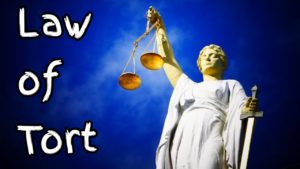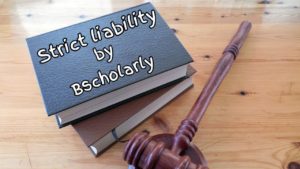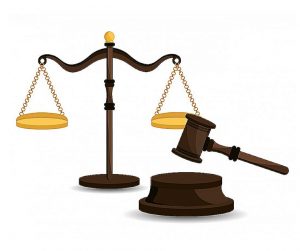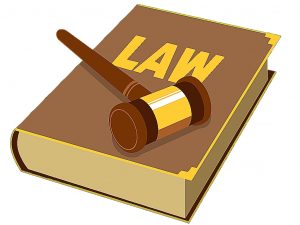In this article i will share with you the defences a defendant can plea in the tort of strict liability. If you are a student or a researcher and you have been searching for the defences to strict liability in tort, then search no further. This is a comprehensive article on the defences to the tort of strict liability. Nonetheless, before going into the crux of this post, i would like to explain some concepts so as to enable you understand easily when the substantial part of this topic is discussed. So first, what is strict liability?

The principle of strict liability is said to arise in situations where fault is considered to be irrelevant to the question of liability. This means that a defendant will be liable for damages caused by his act, irrespective of any fault on his part. In explaining this principle, Salmond said that “a man acts his paril and is responsible for accidental harm, independent of the existence of either wrongful intent or negligence.” Thus, once damage occurs, compensation would automatically be granted.
The principle was made by Blackburn J in the case of Ryland v Fletcher. For the purpose of this work, i will briefly explain the principle according to Blackburn and also discuss the facts of Ryland v Fletcher (1865) 3H&C. 774; 159 E.R. 737 (Court of Exchequer).
Also: How to become a successful lawyer: 7 Successful Lawyer Qualities
Liability under the rule in Ryland v Fletcher:
The rule in Ryland v Fletcher (1865) 3H&C. 774; 159 E.R. 737 (Court of Exchequer) makes a defendant liable irrespective of fault on his part. The rule states that any person who, in the course of non-natural use of his land, accumulates thereon, for his own purpose, anything likely to do mischief if it escapes, is liable for all direct damage or interference with the use of the land of another, which results from the escape of the thing from his land.
Facts of the case of Ryland v Fletcher are given below:
The defendants employed independent contractors to construct a reservoir on their land. While carrying out the work, the independent contractors discovered some disused shafts beneath the site of the reservoir which connected their land with the plaintiff’s mine. They negligently did not block them up because the shafts appeared to be filled with earth.
When the reservoir was completed and filled with water, the water escaped down the shafts and flooded the mine of the plaintiffs. It was found that the defendant had not been negligent, although the independent contractors had been. Nonetheless, the defendants were held liable under the rule of law established by Blackburn J.
MUST READ: Why lawyers are called liars? See why lawyers are liars
Liability for damages caused by animals:
Liability for damages caused by an animal being kept by a defendant may arise under under several torts. For example, a person who teaches his parrot to utter defamatory words may be held liable if the parrot utter those words in the presence of a third person. He will be responsible for the defamation as if he has spoken it. Conversely, a person who drives a heard of cattle to the middle of the road and causes obstruction there, will be liable in public nuisance.
More so, a person who incites an animal to attack another person may be liable in assult and battery as if he hit that person by himself, he can also be liable in trespass, for example, if he allows his animal to enter prohibited land, provided he intended it to happen or negligence for the foreseeable damage done by his animal.
Top 5 Major Defences to Strict Liability In Law
Now that you have understood the principle of strict liability and the case where the rule was made, it is wise to share the defences a defendant can plea in the case of strict liability.

1. Act of a Third Party or a Stranger: The principle of strict liability will not apply where the escape complained of was caused by the deliberate act of a stranger which could not reasonably have been anticipated by the defendant. Thus, that can be use as a defence to strict liability in tort. In Box v Jubb (1879) 4 Ex Div. 76, the defendants, owners of a reservoir, were held not liable for the flooding of neighboring land caused by the act of a third party in emptying his own reservoir into others.
A similar decision was given in Richard v Lothian. Here, the defendant failed in his claim when a third party turned on the tap and deliberately blocked up the water-pipe of a lavatory basin in the defendant’s premises, thereby flooding the plaintiff’s premises. This is apparently one of the most used defences for strict liability in strict liability.
Must read: Case on nuisance: 10 Court Cases On the tort of nuisance
2. Consent of the plaintiff: It is defence to strict liability that the consent of the plaintiff was given directly or impliedly before the injury occurred. Where the plaintiff has, expressly or impliedly, consented or permitted the defendant to accumulate the thing, the excape of which is complained of, then he cannot sue if it escapes.

This was corroborated in the case of Kiddle v City Business properties Ltd (1942) 1 K. B. 269. In this case, water from the sloppy roof above the plaintiff’s shop escaped from a gutter above his shop, and this gutter channelled the water to the plaintiff’s premises. The plaintiff/tenant’s stock was damaged. This was due to the blocking of the pipe with rubbish. The defendant landlord had not been negligent and it was held that the plaintiff, having accepted the lease of the building as it was, with the shop as apart of the building, and the over-hanging gutter as it was, had consented to the damage. This is a clear case of implied consent.
3. Default of the plaintiff: Another defence for a defendant in the case of strict liability is to show that the plaintiff was trespassing on land where a vicious animal was kept when the animal injured him, unless the animal was kept to deliberately attack and injure trespassers and not merely to deter them.

This was stated in Brock v Copeland that “every man has a right to keep a dog to guard one’s house.” Clearly, the question of keeping a dog to guard one’s house is consistent with the duty of common humanity to trespassers as was laid down in British Railway Board v Herrington, provided some warning of its presence is given.
Thus, it was stated in that case that “… If the presence of the trespassers is known to or reasonably to be anticipated by the occupier”, then the keeper of the animal would be expected to be human, i.e act in accordance with common standards of civilized behavior, in exposing him to the danger posed by the presence of the animal on the premises. It is therefore obviously inhuman to keep a lion or cobra for the purpose of the protection of one’s house, whereas keeping a dog, even a fierce one, maybe considered reasonable in the circumstances.
MUST READ:
- See the Pillars of every democratic state
- Cheapest universities to study law in Nigeria
- Richest lawyers in Nigeria 2024
4. Contributory negligence: Accordingly, a defendant can plea that the damage to the plaintiff was caused partly or entirely due to the default of the plaintiff. For example, where he teases a dog or touches animals in a zoo.

In Marlor v Ball (1900) 16 T. L. R. the plaintiff, who was stroking a Zebra at a zoo was kicked by the animal and he fell into the next stall, where he was bitten on the hand by another animal, and his hand had to be amputated. The court held that he brought the injury upon himself.
5. Act of God: An act of God is said to occur where the escape is caused by natural causes, and without human intervention, in circumstances which no human foresight can provide against, and of which human prudence is not bound to recognize the possibility. That is to say, that the escape is caused by natural forces beyond human anticipation or avoidance.
This was the the position in the case Nichola v Marsland (1876) 2 Ex. D. I. Here, the defendant created some artificial ornamental lakes by damming up a natural stream. He was held not liable and succeeded on the defence of Act of God when an extraordinary rainfall “greater and more violent than any within the memory of witnesses caused the artificial embankments to collapse and the rush of the escaping water destroyed four nearby bridges of the ruch of the escaping water destroyed four nearby bridges of the plaintiff.
The defendant was not negligent, and could not be made liable for an extraordinary act of nature, which she could not reasonably have anticipated.

MUST READ: Donoghue v Stevenson: Facts, Issues and Decision of the court
Yeah! There you have the defences for strict liability. Note that the defences here are not exhaustive. There are other defences not discussed here. However, i have touched a substantial number of the defences that can be pleaded in strict liability. If you have questions or contributions to make concerning the defences discussed above, i enjoin you to share them with us using the comment section below this post.

Edeh Samuel Chukwuemeka, ACMC, is a lawyer and a certified mediator/conciliator in Nigeria. He is also a developer with knowledge in various programming languages. Samuel is determined to leverage his skills in technology, SEO, and legal practice to revolutionize the legal profession worldwide by creating web and mobile applications that simplify legal research. Sam is also passionate about educating and providing valuable information to people.